B2B marketing channels refer to the various platforms and methods businesses use to market their products or services to other businesses. Unlike B2C (business-to-consumer) marketing, B2B marketing focuses on building relationships and providing value to other companies. These channels can include digital platforms, direct sales, partnerships, and events, each tailored to meet the specific needs and preferences of business clients.
I. Importance of Effective B2B Marketing Strategies
Effective B2B marketing strategies are crucial for reaching the right business audiences and driving sales. Businesses need to carefully choose and manage their marketing channels to ensure they are engaging with potential clients in meaningful ways. This involves understanding the unique challenges and opportunities within the B2B landscape, such as longer sales cycles, higher-value transactions, and the importance of building trust and credibility. By leveraging the right channels, businesses can achieve better market penetration, foster long-term relationships, and ultimately, enhance their bottom line.
In this blog, we will explore various B2B marketing channels and provide insights into how businesses can effectively use them to reach and engage their target audiences. We will discuss digital marketing tactics such as content marketing, social media, and email campaigns, as well as traditional methods like trade shows, direct mail, and telemarketing. Additionally, we will highlight the importance of integrating multiple channels for a cohesive strategy and offer tips for measuring and optimising performance. By the end of this blog, you will have a comprehensive understanding of how to implement successful B2B marketing strategies tailored to your business needs.
II. Understanding B2B Marketing Channels
A. Definition and Characteristics of B2B Marketing Channels
 B2B marketing channels refer to the pathways through which businesses reach other businesses to promote and sell their products or services. These channels are characterised by their focus on relationship-building, long sales cycles, and the need for tailored communication strategies. Unlike B2C channels, B2B channels often involve more complex decision-making processes and higher transaction values.
B2B marketing channels refer to the pathways through which businesses reach other businesses to promote and sell their products or services. These channels are characterised by their focus on relationship-building, long sales cycles, and the need for tailored communication strategies. Unlike B2C channels, B2B channels often involve more complex decision-making processes and higher transaction values.
B. Different Types of B2B Marketing Channels
There are various types of B2B marketing channels, each catering to different aspects of business needs. Common channels include direct sales, where a dedicated sales team approaches potential clients; digital marketing, which leverages SEO, PPC, and content marketing to attract leads; and partnership channels, where businesses collaborate to expand their reach. Additionally, events and trade shows provide a platform for face-to-face interactions, fostering direct engagement with potential clients.
C. Importance of Events as a B2B Marketing Channel
Events play a crucial role in B2B marketing by facilitating direct interaction between businesses and their target audience. Thought leadership events, business summits, and industry conferences provide opportunities for companies to showcase their expertise, network with key stakeholders, and generate leads. These gatherings are instrumental in establishing a company’s reputation and credibility within the industry.
For example, the Hindustan Times Leadership Summit and the Mint Start-Up Icon Summit & Awards are notable events that attract a wide range of business leaders and innovators. These events serve as platforms for thought leaders to share insights, discuss industry trends, and explore new business opportunities. By participating in such events, businesses can position themselves as leaders in their field, engage with potential clients, and enhance their market presence .
III. Strategies for Effective B2B Marketing Channels
A. Research and Target Audience Analysis
1. Identifying Ideal Customer Profiles (ICPs)
To optimise B2B marketing channels, it is essential to identify Ideal Customer Profiles (ICPs). These profiles represent the types of companies that would benefit most from your products or services. By pinpointing specific industries, company sizes, and other relevant criteria, businesses can tailor their marketing strategies to attract the right clientele. This precision helps in resource allocation and ensures marketing efforts yield higher conversion rates.
2. Conducting Market Research
Thorough market research is a cornerstone of effective B2B marketing. This involves analysing market trends, competition, and the needs of potential clients. Utilising tools like surveys, industry reports, and SWOT analysis provides valuable insights. Market research helps in understanding where to find potential customers and how to engage them effectively. It also aids in identifying gaps in the market that your business can fill, thus creating a strategic advantage.
3. Understanding Buyer Personas
Developing detailed buyer personas is crucial for connecting with your target audience on a deeper level. Buyer personas are semi-fictional representations of your ideal customers, based on data and research. They include information on job roles, company details, pain points, and purchasing behaviour. Understanding these personas enables marketers to craft personalised messages and content that resonate with their audience, leading to more effective communication and higher engagement rates. businesses can enhance their B2B marketing channels by ensuring they reach and resonate with the right audience. This targeted approach not only increases the efficiency of marketing efforts but also drives better business outcomes.
B. Leveraging Content Marketing Across Various Channels
1. Leveraging Content Marketing Across Various Channels
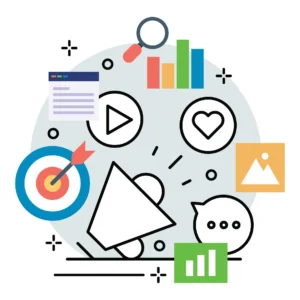 Brand development strategies are the cornerstone of building a strong and recognizable brand. These strategies encompass decisions about what your brand stands for, how it looks, and how it communicates with customers. Strong brand development strategies are crucial as they help businesses set themselves apart, gain trust, and maintain customer loyalty. According to Grand View Research, the global business-to-business e-commerce market size was estimated at USD 18,665.95 billion in 2023 and is projected to grow at a compound annual growth rate (CAGR) of 18.2% from 2024 to 2030. This highlights the significant opportunity for businesses to leverage effective branding to capture a share of this rapidly expanding market.
Brand development strategies are the cornerstone of building a strong and recognizable brand. These strategies encompass decisions about what your brand stands for, how it looks, and how it communicates with customers. Strong brand development strategies are crucial as they help businesses set themselves apart, gain trust, and maintain customer loyalty. According to Grand View Research, the global business-to-business e-commerce market size was estimated at USD 18,665.95 billion in 2023 and is projected to grow at a compound annual growth rate (CAGR) of 18.2% from 2024 to 2030. This highlights the significant opportunity for businesses to leverage effective branding to capture a share of this rapidly expanding market.
2. How B2B Companies Leverage HT Media’s Channels to Fulfil Business Objectives
HT Media’s channels provide a platform for B2B companies to achieve their marketing objectives. The case studies of Oracle and a leading technology company illustrate how effective these channels can be.
HT Media x Oracle: Oracle collaborated with HT Media to launch a comprehensive campaign aimed at showcasing their cloud solutions. By utilising HT Media’s extensive reach, Oracle was able to target decision-makers in key industries, resulting in increased awareness and engagement with their cloud offerings. The integration of print, digital, and event channels ensured a well-rounded approach that maximised Oracle’s visibility and influence .
HT Media x A Leading Technology Company: Another example is the partnership between HT Media and a leading technology firm. This collaboration focused on promoting the company’s latest innovations through a mix of digital and print media. The campaign successfully generated high-quality leads and enhanced the company’s brand positioning in the market. By tapping into HT Media’s diverse audience base, the technology company was able to reach a broader segment of potential clients and industry stakeholders .
Both case studies demonstrate the effectiveness of using HT Media’s multi-channel approach to meet specific business objectives. By integrating different marketing channels, B2B companies can significantly amplify their reach and engagement, driving better results from their marketing efforts.
C. Personalisation and Customisation
1. Tailoring Messages to Specific Industries or Niches
Personalization and customization are crucial strategies for effectively reaching and engaging business audiences. Tailoring messages to specific industries or niches ensures that the content resonates with the unique needs and challenges of each segment. By understanding the pain points, regulatory environments, and market dynamics of a particular industry, marketers can craft messages that speak directly to these factors. This targeted approach not only enhances the relevance of the communication but also increases the likelihood of conversion, as businesses feel understood and valued.
2. Video Content for Enhanced Engagement
Video content has emerged as a powerful tool for B2B companies aiming to boost brand awareness and engagement. With the ability to convey complex information in a visually appealing and easily digestible format, videos are highly effective in capturing the attention of business audiences. Companies are increasingly using video content for product demonstrations, case studies, webinars, and customer testimonials.
A notable example is the case study of Mint, an MNC IT services consulting company, which leveraged video content to achieve remarkable results. Through a series of well-crafted videos, Mint was able to showcase their expertise, highlight successful client collaborations, and demonstrate the tangible benefits of their services. This approach not only improved their brand visibility but also fostered stronger connections with potential clients, ultimately driving business growth. You can read more about this success story here.
D. Analytics and Performance Tracking
1. Utilising Data Analytics Tools
Leveraging data analytics tools is crucial for gaining insights into the effectiveness of various marketing channels. Tools like Google Analytics, HubSpot, and Adobe Analytics enable businesses to track user behaviour, identify trends, and measure campaign performance. By utilising these tools, marketers can make data-driven decisions, optimise campaigns in real-time, and improve their overall strategy to better target business audiences.
2. Monitoring Key Performance Indicators (KPIs)
Key Performance Indicators (KPIs) are essential metrics that help businesses evaluate the success of their B2B marketing efforts. Common KPIs include lead generation rates, conversion rates, customer acquisition costs, and return on investment (ROI). Regularly monitoring these KPIs allows marketers to assess which channels are most effective, identify areas for improvement, and ensure that marketing initiatives align with business objectives. This focused approach ensures resources are allocated to the most impactful strategies.
3. Continuous Optimisation Based on Insights
Continuous optimization is a vital component of a successful B2B marketing strategy. By analysing performance data and gathering insights from various campaigns, businesses can refine their tactics and enhance their marketing efforts. This process involves A/B testing, adjusting content strategies, and reallocating budgets to high-performing channels. The goal is to consistently improve engagement, increase lead quality, and drive better business outcomes. By embracing a culture of continuous improvement, B2B marketers can stay ahead of the competition and meet the evolving needs of their target audience.
IV. Examples of Successful B2B Marketing Channel Strategies
A. How a leading tech MNC ran a Unified Workforce campaign and reached 8.58 million people Through LiveMint
1. Seamless Integration of Digital and Traditional Channels
A leading tech multinational corporation (MNC) effectively leveraged both digital and traditional channels to execute a Unified Workforce Campaign, significantly amplifying its reach. Collaborating with LiveMint, the company utilised a multifaceted approach, incorporating video content, a dedicated microsite, web banners, and more. This seamless integration enabled the campaign to create a cohesive narrative that resonated across different platforms, ensuring maximum visibility and engagement. Click here to know more.
2. Impact of this Campaign
The Unified Workforce Campaign’s success was remarkable, reaching an impressive 8.58 million people. LiveMint’s comprehensive platform played a pivotal role in this achievement, providing a versatile and dynamic medium for content delivery. According to the case study, the strategic use of varied content types and channels not only broadened the campaign’s reach but also enhanced its effectiveness in conveying the brand’s message to a diverse business audience .
3. Data-Driven Decision Making
A significant element of this campaign’s success was the data-driven approach adopted by the tech MNC. By analysing real-time data and insights, the company was able to fine-tune its strategies, optimise content delivery, and ensure that the campaign resonated well with the target audience. This approach underscored the importance of using data analytics in B2B marketing to achieve precise targeting and impactful results.
C. IBM’s Thought Leadership Campaigns with Hindustan Times Cod-e-athon
1. Establishing Authority Through Thought-Provoking Content
IBM’s partnership with Hindustan Times for the Codeathon initiative exemplifies the power of thought leadership in B2B marketing. By producing and disseminating insightful and thought-provoking content, IBM positioned itself as an authority in the tech industry. This strategy not only showcased IBM’s expertise but also engaged its audience in meaningful ways, fostering a deeper connection with potential clients.
2. Engaging Target Audience Across Various Channels
The Code-a-thon campaign successfully engaged its target audience by utilising a variety of channels. From online articles and social media posts to interactive events and competitions, IBM ensured a broad and engaging presence. This multi-channel approach allowed IBM to reach and interact with a wider audience, reinforcing its brand message and demonstrating its commitment to innovation and education.
3. Driving Brand Awareness and Trust
The impact of the Hindustan Times Code-a-thon campaign on IBM’s brand awareness and trust was substantial. By aligning with Hindustan Times and focusing on educational initiatives, IBM not only increased its visibility but also built credibility and trust among its audience. This strategic alignment with a reputable media partner and the focus on delivering valuable content were key factors in driving the campaign’s success and enhancing IBM’s reputation in the market .
FAQs for B2B Marketing Channels Blog
1. What are B2B marketing channels?
B2B marketing channels are the various platforms and methods businesses use to market their products or services to other businesses. These channels can include digital platforms, direct sales, partnerships, and events, all tailored to meet the specific needs and preferences of business clients.
2. How do B2B marketing channels differ from B2C marketing channels?
B2B marketing channels focus on building relationships and providing value to other companies, involving longer sales cycles and higher transaction values. In contrast, B2C (business-to-consumer) marketing targets individual consumers with often shorter sales cycles and lower transaction values.
3. Why are effective B2B marketing strategies important?
Effective B2B marketing strategies are crucial for reaching the right business audiences, driving sales, and fostering long-term relationships. They help businesses engage with potential clients in meaningful ways, achieve better market penetration, and ultimately enhance their bottom line.
4. Why are events important in B2B marketing?
Events play a crucial role in B2B marketing by facilitating direct interaction between businesses and their target audience. They provide opportunities for companies to showcase their expertise, network with key stakeholders, and generate leads, thereby establishing reputation and credibility within the industry.
5. How does content marketing benefit B2B companies?
Content marketing helps B2B companies engage business audiences by creating valuable and relevant content. This can attract and retain customers, build trust, and establish authority in their industry. Effective content can be disseminated across multiple channels, reaching a broader audience.
Ready to take your brand to the next level? Connect with us today to explore how HT Media can amplify your presence across our diverse portfolio of 25+ brands and properties. Let's turn your brand vision into reality!

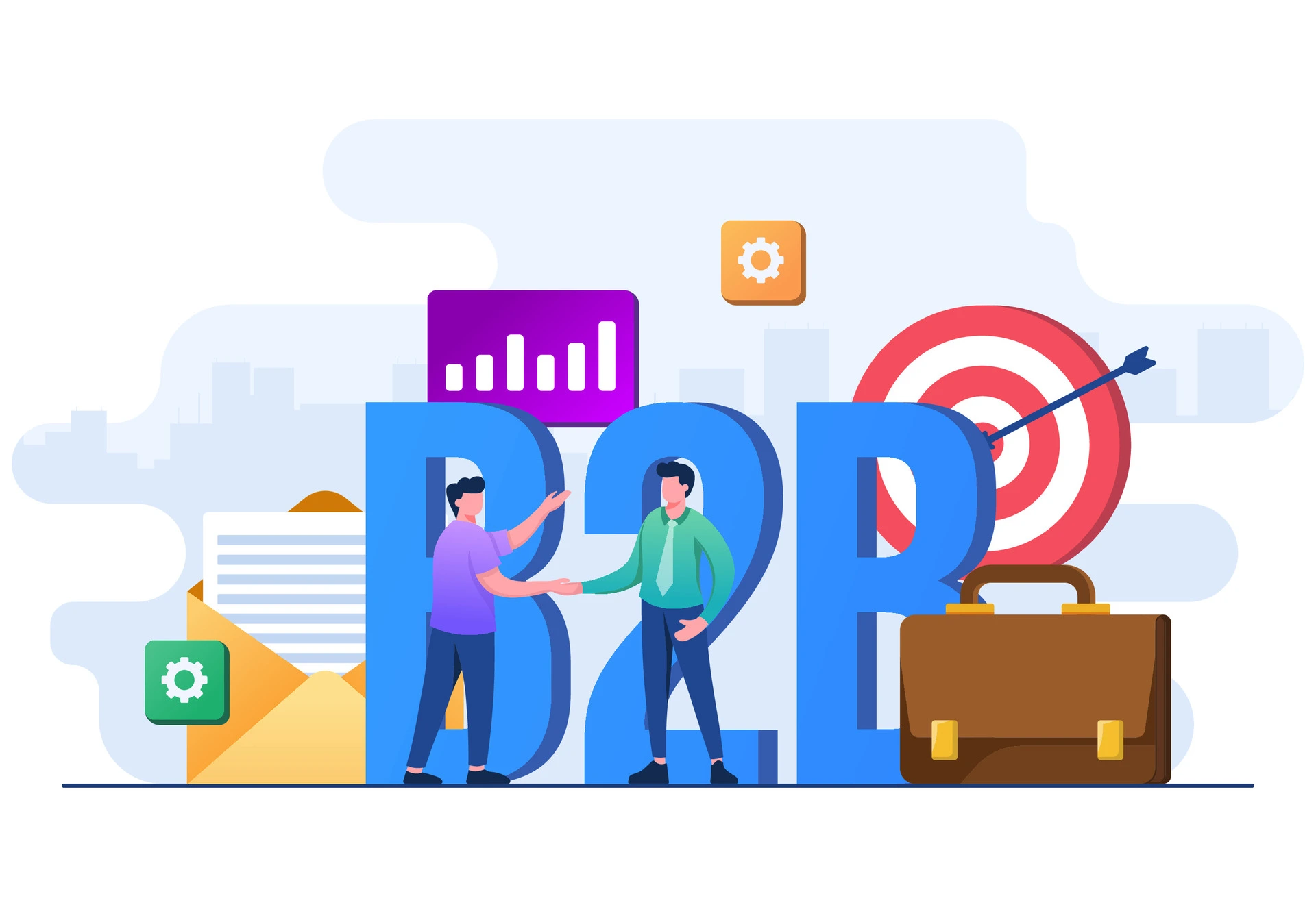








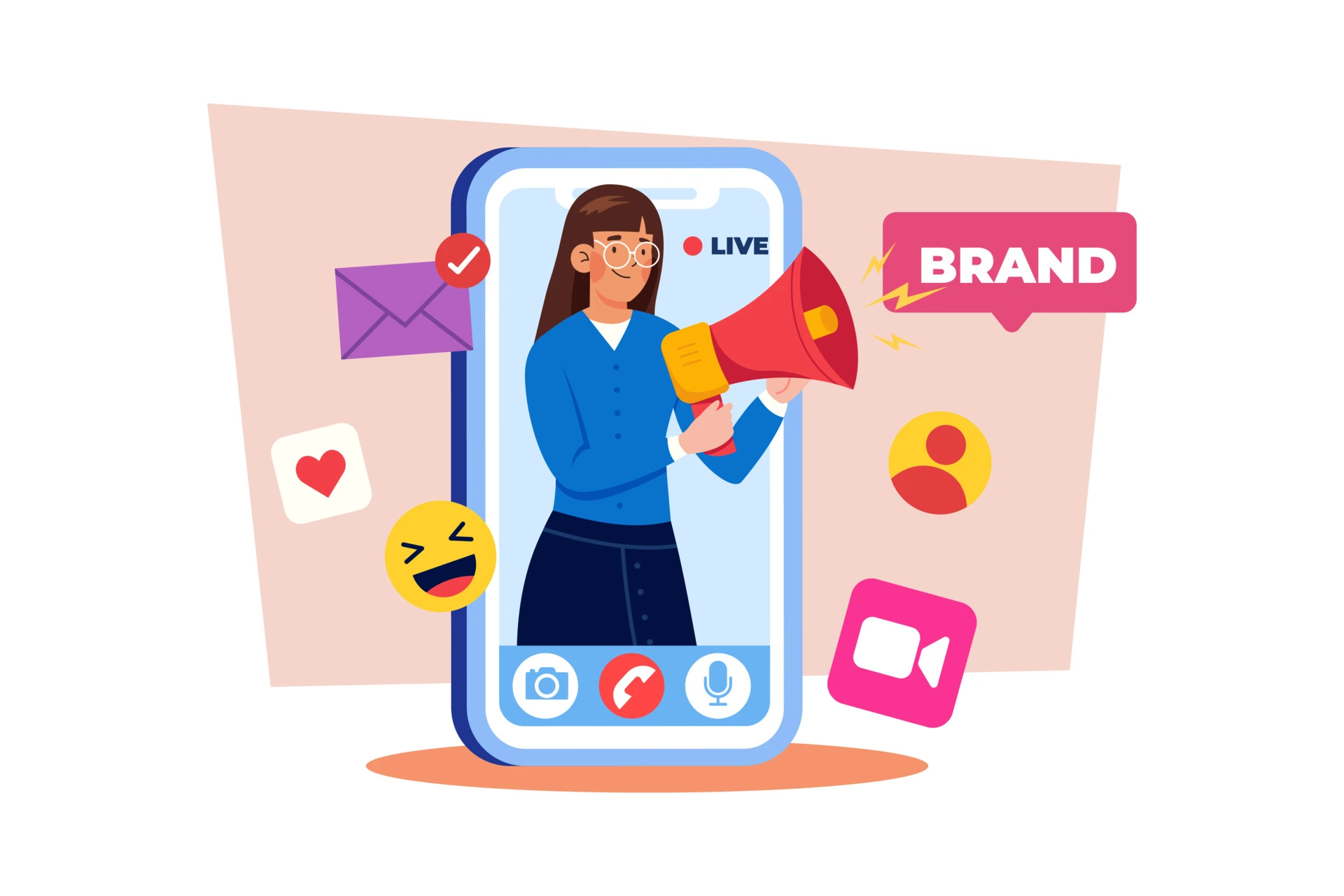



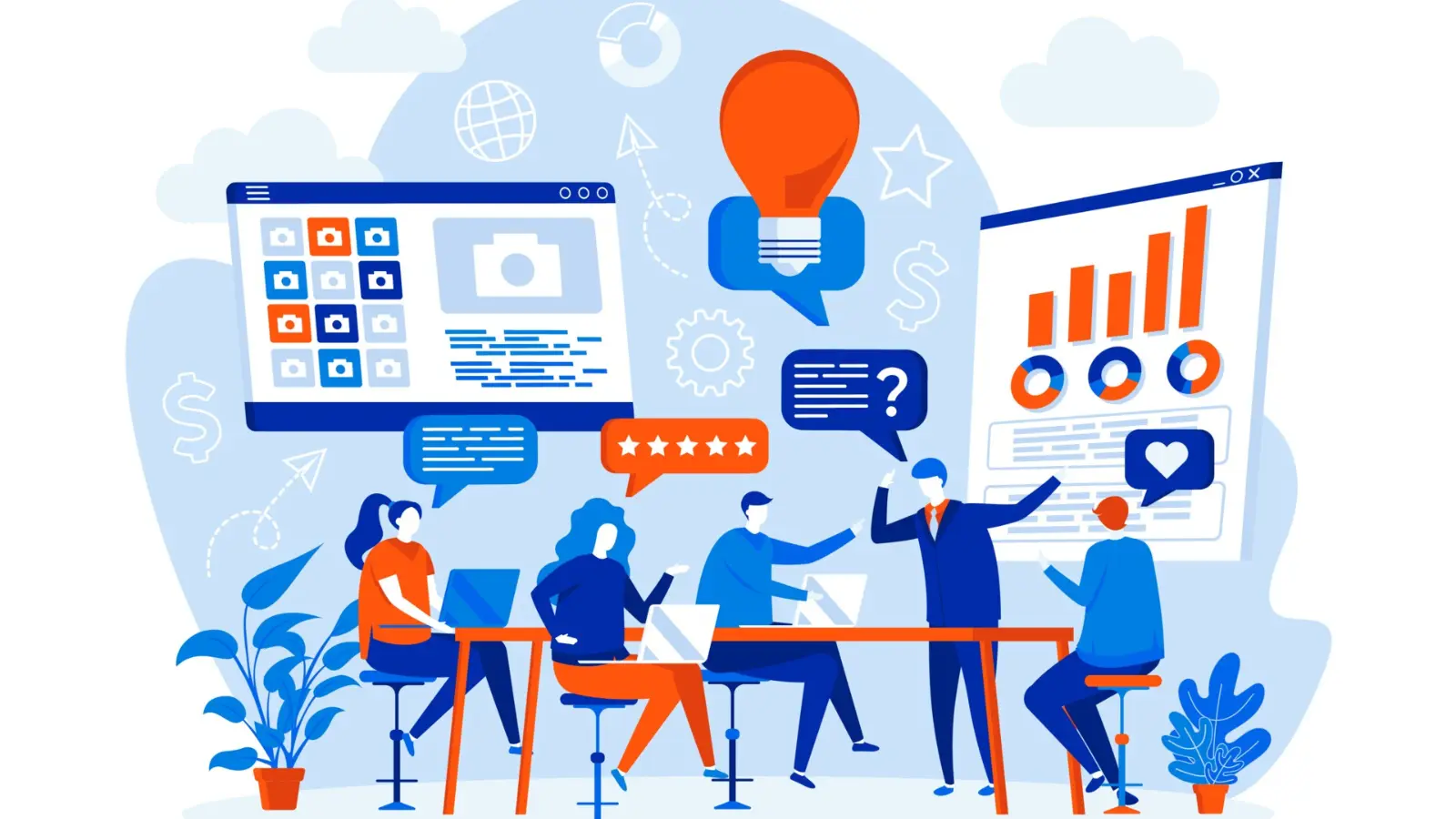

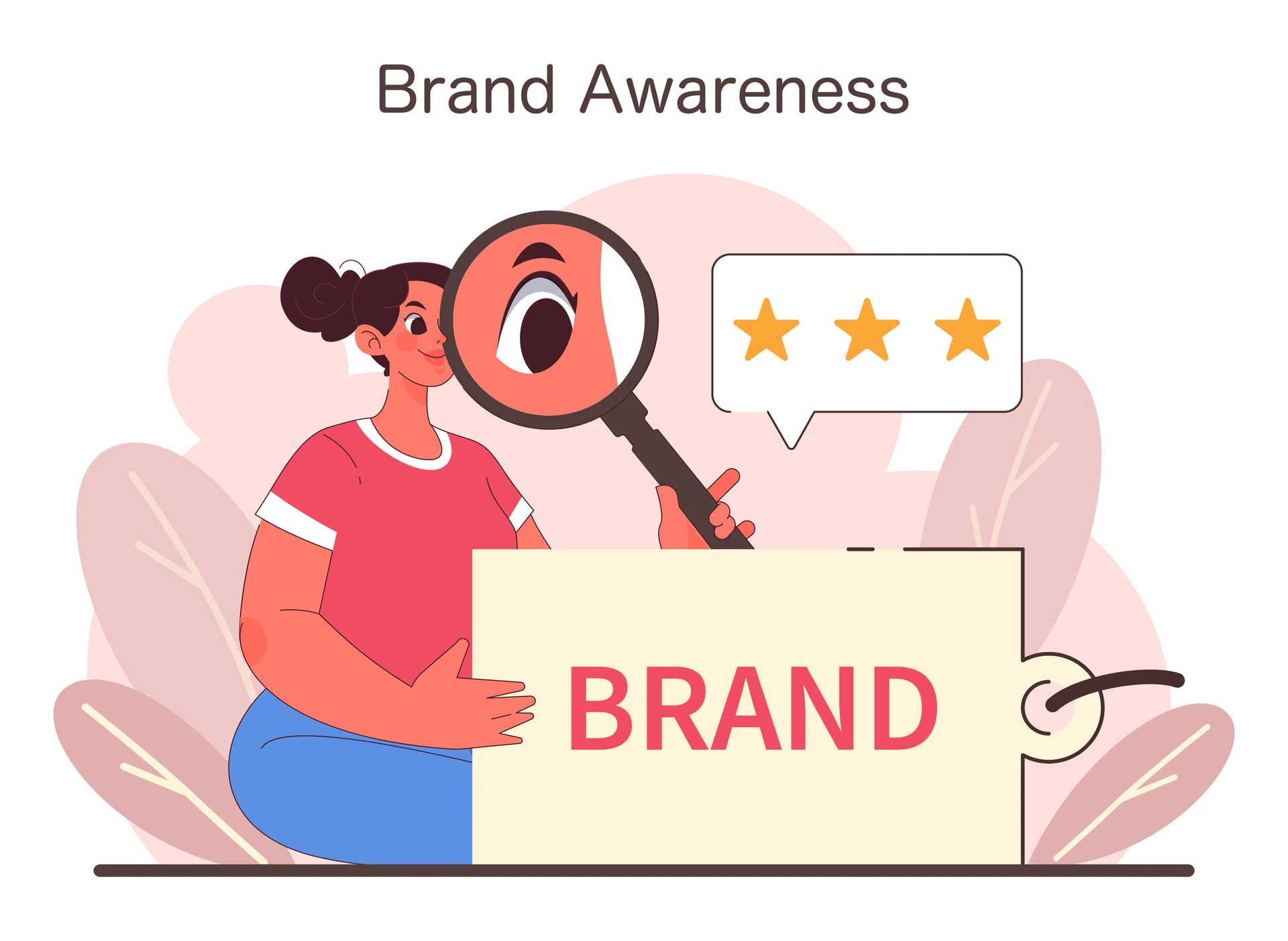

Comment